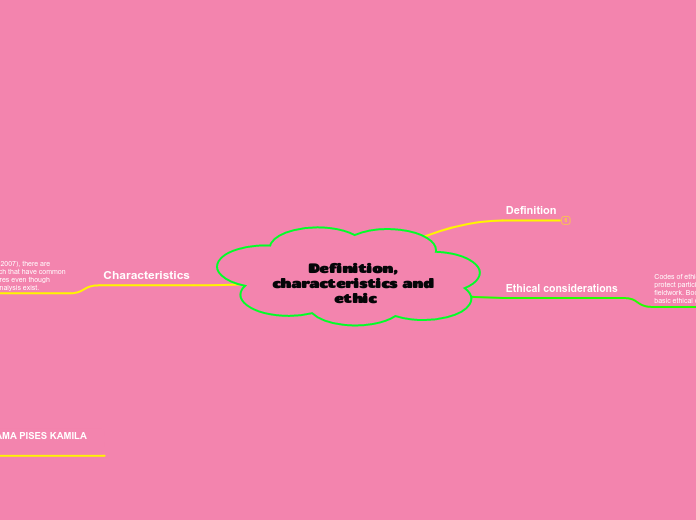Definition, characteristics and ethic
Definition
Ethical considerations
Codes of ethics have to be set by researches in order to protect participants and support ethical approaches to fieldwork. Bodgan and Biklen highlight the following basic ethical considerations
Avoid research sites where participants may feel coerced to participate in the research.
Honour the participants’ privacy.
Consider difference in participants’ time commitment.
Protect participants’ identities to avoid embarrassment or harm.
Treat participants with respect and seek their cooperation in the research.
Negotiate with the participants the terms of the agreement to do a study.
Tell the truth when writing up and reporting the findings.
Characteristics
As claimed by Bogdan and Biklen (2007), there are different types of qualitative research that have common characteristics and similar procedures even though differences in data collection and analysis exist.
Naturalistic
Most of the time, this is used during the initial stage of a research study because of its worth of descriptive value and as a base for hypotheses.
Descriptive data
The data collected in qualitative research take the form of words or pictures rather than numbers. The data could imply interview transcripts, photographs, field notes, videos, personal documents, and other official records.
Concern with process
Qualitative research focuses on process rather than outcomes; that’s why, this uses multiple interactive. The three main methods of data collection, focus group, in-depth interviews and participant observation, involve more active participation by participants.
Inductive
Qualitative research analyses the data in an inductive which means that theories or concepts are built on the base of gathering data. This approach uses a bottom-up direction to understand situations, focus on behaviours, construct theories and reach conclusions.
Meaning
(Erickson, 1986); and these perspectives focus on the assumptions participants make about their lives and what they take for granted.
